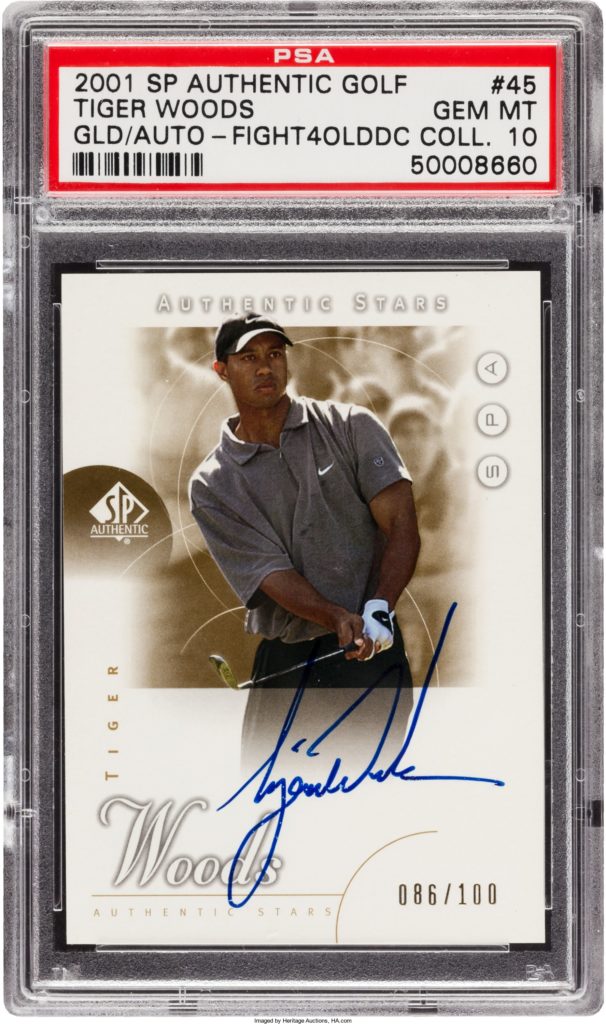
By Jim O’Neal
The modern-day golf Majors include the U.S. and British Opens, the PGA and the Masters Golf Tournament. Jack Nicklaus’ 18 victories in these events is considered the most revered record in the sport.
It wasn’t that long ago that a lot of people were convinced it was only a matter of time until Tiger Woods broke that record and virtually all others of significance in the game. This was especially true in the spring of 1997 following Woods’ stunning professional debut. By the time he arrived at Augusta, he had won three tournaments in seven months as a professional, was chosen as Sports Illustrated’s “Sportsman of the Year,” and, amazingly, was the favorite to win the coveted Masters.
Nicklaus went so far as to predict that Woods would eventually win the Masters 11 times!

As brilliant as he was, it seemed unlikely that Woods would be able to contend with the hype and pressure heaped his way. He not only did, but he made it look easy. He led the tournament by three strokes on Friday (day two), by 9 strokes on Saturday night, and a record 12 strokes on Sunday when the tournament ended. “He’s a boy among men,” Tom Watson innocently said as Woods ran away from the field, “and he’s teaching the men a lesson.” A very sincere compliment from one of golf’s biggest stars.
Woods’ victory wasn’t just an amazing performance by a young star, it was a major social and political event in American history for the simple reason that Tiger was a black man. Woods’ father was African-American, Native-American and Caucasian. His mother was from Thailand. Tiger jokingly calls himself a “Cablinasian.”
Regardless of his ethnic breakdown, the fact is Tiger was a man of color. As late as 1963, this meant that he would not have been allowed to be eligible for membership in the Professional Golf Association (PGA) since membership was limited to “Caucasian only.”
For many years, Augusta National had been a symbol of the old South, a place that clung to segregation, much the way George Wallace had, only without State Troopers. During the first 40 years the Masters was played, the only black men inside the ropes were those carrying golf bags as caddies. Clifford Roberts, who had become the sole master of the Masters after Bobby Jones died in 1971, insisted that the tournament wanted black players and would welcome them when they qualified. But during the 1960s, when both Charlie Sifford and Pete Brown won events on the PGA tour, neither was invited to play in the Masters.
Now a man of color has actually won the Masters and it’s a relief that another barrier has been shattered. But there was a real controversy brewing. A television crew asked 1979 Champion Fuzzy Zoeller, “What do you think about Tiger?” Few golfers have been more friendly than Fuzzy. He is a gregarious, funny man who loves to tell jokes. As the TV cameras rolled, he picked the wrong time to be funny with his references to the potential 1998 Champions Dinner menu. “That little boy is driving well and he’s putting well. … So, you know what you guys do when he gets in here? You pat him on the back and say congratulations and enjoy it and tell him not to serve fried chicken next year. Got it. Or collard greens or whatever the hell they serve.”
When Zoeller’s comments aired a week later, all hell broke loose. He lost his No. 1 sponsor and the controversy took a long time to settle down after multiple apologies, all of which Tiger accepted graciously.
Sadly, four-time Masters winner Woods will not be competing in tomorrow’s Masters due to continued back problems. He will be missed by every Masters fan in America. It will not be the same without him.
 Intelligent Collector blogger JIM O’NEAL is an avid collector and history buff. He is president and CEO of Frito-Lay International [retired] and earlier served as chairman and CEO of PepsiCo Restaurants International [KFC Pizza Hut and Taco Bell].
Intelligent Collector blogger JIM O’NEAL is an avid collector and history buff. He is president and CEO of Frito-Lay International [retired] and earlier served as chairman and CEO of PepsiCo Restaurants International [KFC Pizza Hut and Taco Bell].
